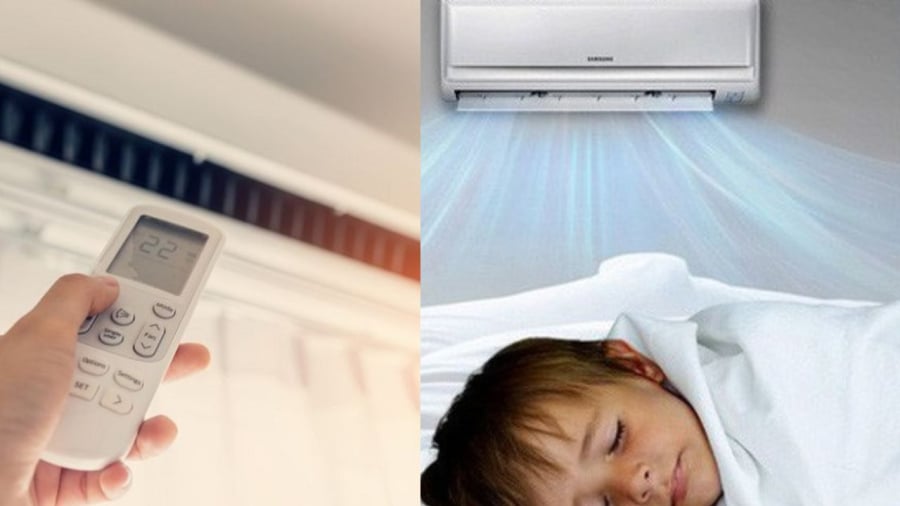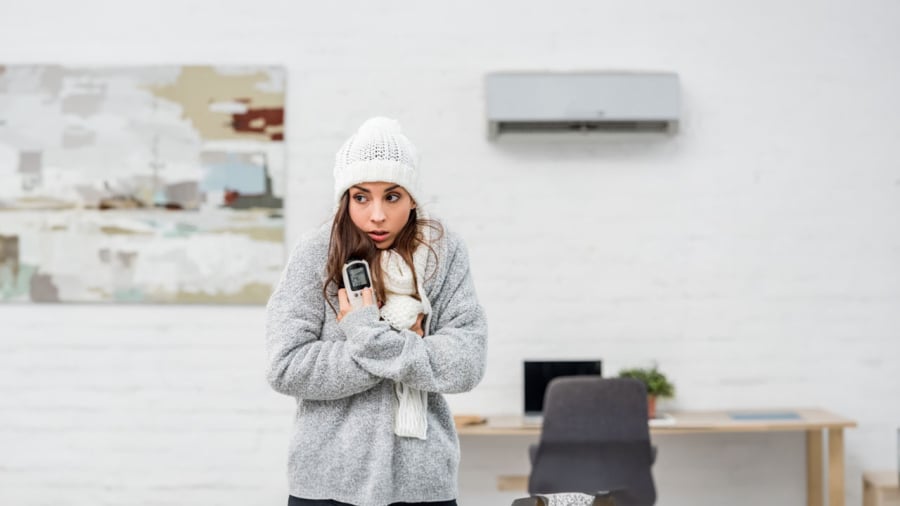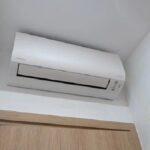In modern times, two-way air conditioners are more common, so many households keep them running throughout the winter. But does turning up the heat make the room warmer? Winter temperatures can drop below 10 degrees Celsius, and at that point, everyone wants their room to be nice and warm, above 20 degrees Celsius. During the hot summer days, experts advise setting your air conditioner between 24-26 degrees Celsius, but what about winter? What’s the optimal temperature then?
Turning up the heat is not advisable
Some families like to crank their air conditioners up to 28-30 degrees Celsius to warm their homes quickly. However, in reality, this temperature is too high for indoor comfort. Setting your AC this high can lead to dry, stuffy air. Winter weather tends to be dry, and running your air conditioner at such high temperatures can further dry out your skin and nasal mucosa, leading to nosebleeds, congestion, sore throat, and hoarseness. Moreover, running your heating system at such high temperatures can overload it, leading to reduced equipment lifespan and even malfunction, not to mention higher electricity bills.

Higher Temperature Doesn’t Mean Better Warmth
Recommended Winter Air Conditioner Temperature:
According to electrical appliance experts, the ideal temperature setting for your air conditioner during winter is between 20-22 degrees Celsius. This range strikes a balance between keeping the room warm and preventing overly dry air, which can be harmful to your skin and health. On extremely cold nights, you can set the temperature a bit higher, between 24-25 degrees Celsius, or even 26 degrees if there are elderly people or young children in the household. Nights tend to be colder, so this slight adjustment can ensure a comfortable environment.
When we sleep, our body temperature drops, and the need for moisture increases. If the temperature drops below 10 degrees Celsius, it is advisable to use the heating function of the air conditioner in conjunction with other heating appliances such as dedicated heaters or fan heaters, along with other home heating methods.
If the weather is particularly dry and the air conditioner makes it even drier, consider using moisturizing creams for your skin and additional humidifiers for the room.

Optimal Winter Temperature: 20-22 Degrees
Other Methods to Keep Your Home Warm in Winter
To make your home cozier during the cold winter months, ensure that your rooms are draft-proof. Keep doors closed to prevent cold air from entering and open them only when there’s warm sunlight to let in. You can also use natural, bacteria-killing herbal incense to create a warmer and more spacious feeling in the room.
Consider adding rugs to your floors to prevent cold from rising. When mopping, ensure the floors dry quickly by opening the doors, and then close them afterward. Opt for warm-colored decorations instead of very bright or dark colors.
Invest in some indoor slippers to keep your feet warm. Ensure that elderly family members and children are adequately dressed for the cold. You can also provide them with heating pads or electric blankets, but be sure to purchase these items from reliable sources to avoid any safety hazards like electric shocks or scalding.
Lastly, never burn charcoal or use any heating appliance in a closed room, as this can lead to dangerous gas build-up and asphyxiation.
6 Smart Ways to Save on Energy Costs This Summer
Saving electricity during the summer is a concern for many households, but not everyone knows how to use their electrical appliances efficiently. With energy costs soaring and the environmental impact of excessive energy consumption becoming an increasingly pressing issue, it’s crucial to adopt smart habits to reduce electricity usage. This starts with understanding which appliances are energy guzzlers and learning simple yet effective strategies to use them more efficiently. By making small changes to our daily routines and being mindful of our energy usage, we can significantly lower our electricity bills and collectively contribute to a greener planet.





































